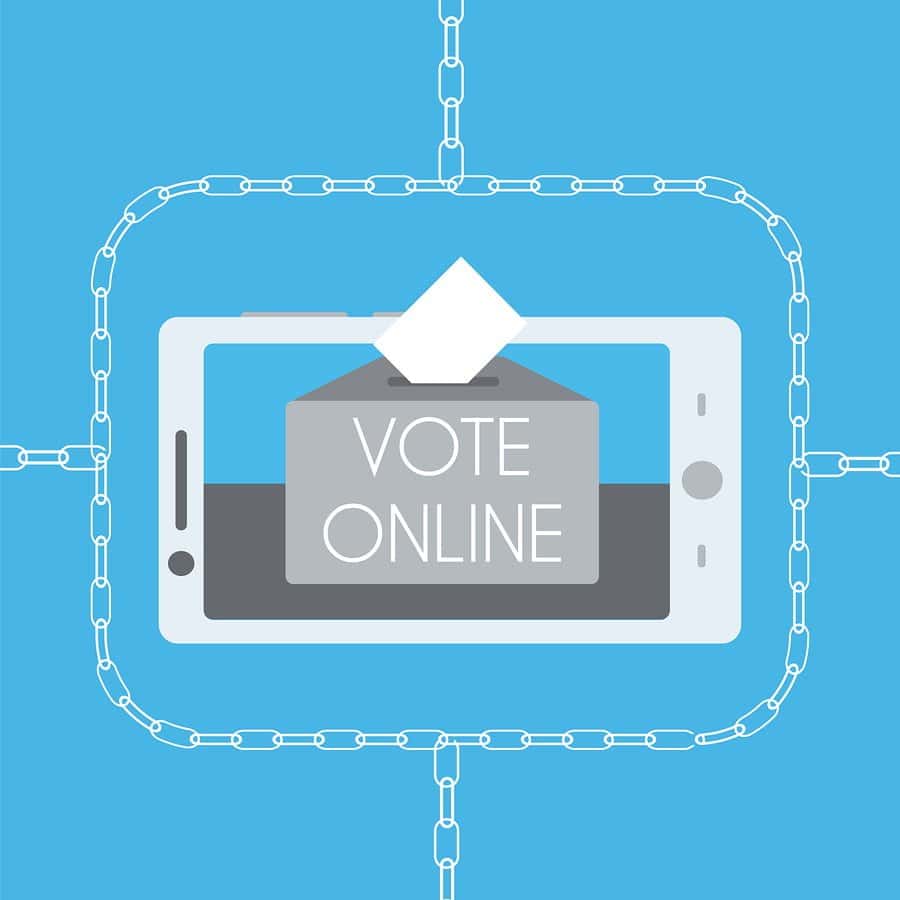Technology has seeped into our lives so much there isn’t much it can’t do. Healthcare, banking and eCommerce – tech is used in these sectors and many others. What about the latest trend – Blockchain? More specifically, Blockchain in politics? Confused? It’s time for some clarity.
Table of Contents
ToggleBlockchain, an ingenious invention that is leaving us all spellbound with its capabilities, has already caused huge changes in our lives. Ideally created for the digital gold, “Bitcoin,” the tech community is still unearthing the powers of Blockchain and it’s anyone’s guess what miracles we will witness during the immediate future.
“The blockchain is an incorruptible digital ledger of economic transactions that can be programmed to record not just financial transactions but virtually everything of value.”
– Don & Alex Tapscott, authors Blockchain Revolution (2016)
The blocks of information stored on Blockchain are accessible to all. It is a distributed database, which a single entity cannot control. The blockchain is a kind of self-auditing ecosystem that is transparent and incorruptible and reconciles every transaction that occurs in it during every ten-minute interval. The best part is the databases stored on it have no centralized version of themselves, which means it leaves no loophole for a hacker to access and corrupt.
Currently, the finance sector is a major user of Blockchain and it is being implemented in other sectors, such as healthcare, smart contracts and personal identification. “Politics” is one institution where its application is highly anticipated and deserves close observation.
Of course, your first thought may be, “How could Blockchain possibly operate in the world of politics?” Surprisingly, Blockchain could have a Big-Bang effect on elections. It can transform the nature of our voting by providing a critical benefit we all want – “Security.”
The system of politics, be it in any corner of the world, has some leaky spaces and questionable ethics during many elections. Blockchain is needed the most to protect the integrity of elections in spite of increasingly improved security. The Electronic Voting Machine (EVM)/ballot we use and trust to select our politicians is vulnerable to hacking, but Blockchain technology can deter anyone from meddling with our important right and responsibility as citizens.
Blockchain has already been put into practice in elections. During March 2018, Sierra Leone, a country in West Africa, ran the first blockchain-based election successfully. A voter is given a “wallet” (a type of user identifier or credential) and a “coin” (an opportunity to cast a vote). The voter’s identity is then verified using biometric tools, such as a thumbprint scan, before voting on a mobile device. Verified voters would then be able to cast their votes electronically into a blockchain-based ledger, where their votes would remain secure and transparent while maintaining the anonymity of voters and results, which would be stored in various nodes. Each recorded vote then forms part of a chain of votes, where the third-party participant who has agreed to a specific set of guidelines about how transactions are processed within a blockchain, mathematically proves it. This third-party verification network is a group of independent verifying actors, such that no single person can alter any data in blockchain himself or herself. In short, the recorded votes will be remarkably secure.
Blockchain elections provide voters with three benefits:
- The ability to vote from anywhere without waiting in a long queue.
- Ensuring their vote has been recorded.
- Assurance no one can tamper with their votes and the process is absolutely secure.
How Blockchain can change politics
- Improve the trust factor
Privacy is voters’ primary concern, as the system has been attacked in several parts of the world, diminishing voters’ trust in the system. To make it secure again and to maintain that security forever, Blockchain voting must become a common practice. The good news is many nations have already begun researching blockchain voting, and Estonia is one of the pioneers.
- Reducing the cost of campaigns
Political campaigns spend an enormous amount of money for marketing campaigns, in an attempt to use the power of money to influence voters, which must stop. Blockchain voting will not require such huge expenditures and the effort to solicit donations, as the voting will be purely based on each voter’s knowledge and belief.
- Voter engagement increase dramatically
Despite their eligibility and possession of a voter registration card, too many citizens don’t vote. The reason are varied, including long queues, no time, apathy, etc. Blockchain voting will overcome these barriers in an instant. Once e-voting is enabled from smartphones or desktops, voters will be able to cast their vote from anywhere within minutes. This would increase voter engagement and, thereby, result in a stronger democracy.
- Blockchain can also benefit other parts of politics, not just elections
The power of blockchain isn’t limited to elections. Once it is incorporated into other governmental bodies and functions, interactions between the government and the public will become more direct and secure than the current frustrating and puzzling procedures.
Final Thoughts
For blockchain to become a viable voting option, it must first overcome a number of challenges. Many strategies must be implemented to make it fully functional and available to people around the world. The freedom of voting electronically, the end of long wait times, the elimination of fraudulent voters, improved security and transparency, no more excessive expenditures to promote candidates, the resources and time for political rallies and events to promote voter rights, which can become violent, could all be dramatically changed for the better with Blockchain-based elections. Thankfully, it is being considered in many nations, and we must actively support the use of Blockchain in politics in the expectation it will improve the process very soon.
Summary:
Blockchain Could Change Politics
The blocks of information stored on Blockchain are accessible to all. It is a distributed database, which a single entity cannot control. The blockchain is a kind of self-auditing ecosystem that is transparent and incorruptible and reconciles every transaction that occurs in it during every ten-minute interval. The best part is the databases stored on it have no centralized version of themselves, which means it leaves no loophole for a hacker to access and corrupt. Blockchain is needed the most to protect the integrity of elections in spite of increasingly improved security. The Electronic Voting Machine (EVM)/ballot we use and trust to select our politicians is vulnerable to hacking, but Blockchain technology can deter anyone from meddling with our important right and responsibility as citizens. Blockchain elections provide voters with three benefits: 1. The ability to vote from anywhere without waiting in a long queue. 2. Ensuring their vote has been recorded. 3. Assurance no one can tamper with their votes and the process is absolutely secure.





